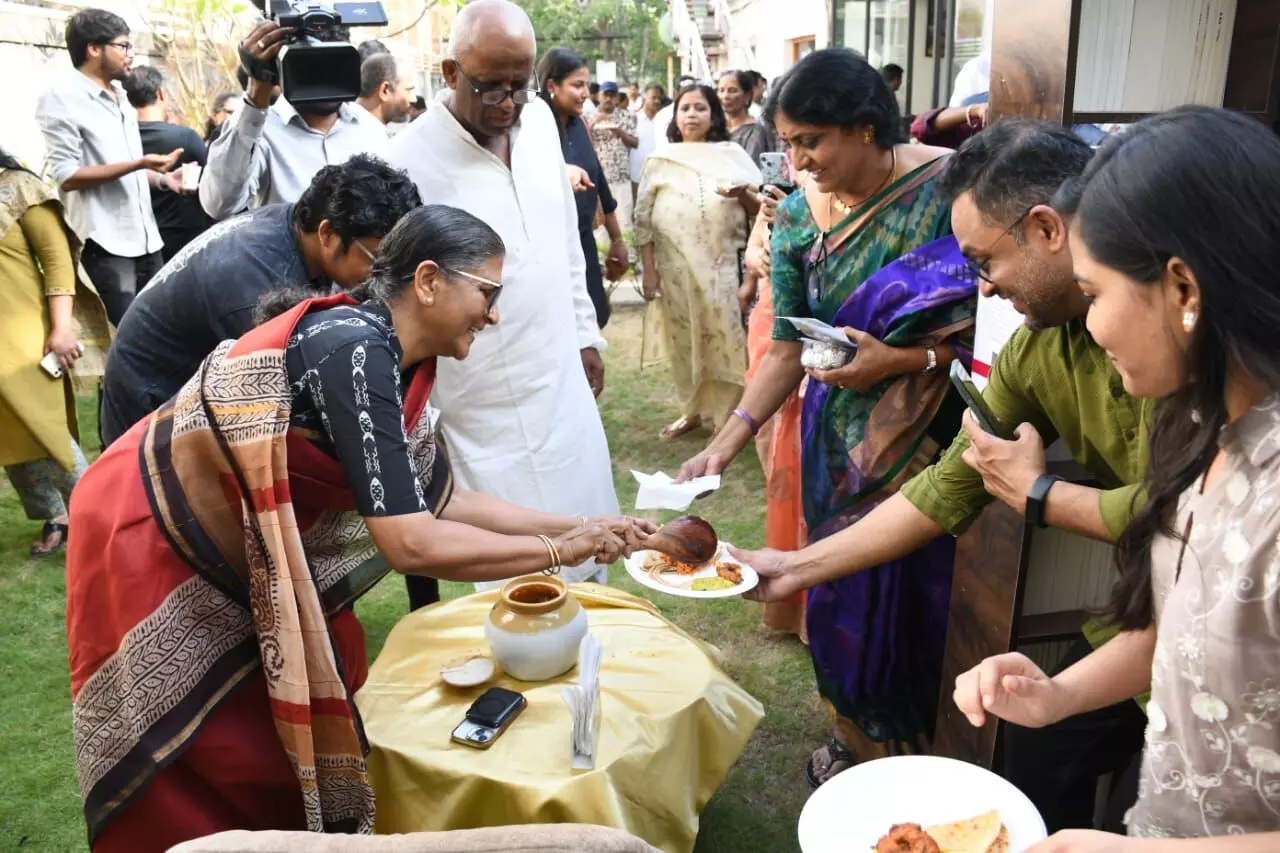Telangana Kathalu: Onamaalu takes a gastronomic route for Telugu culinary, cultural renaissance
Telangana Kathalu first regional chapter of Onamaalu embarks on journey to revive Telugu culinary, cultural heritage in Hyderabad
By Anoushka Caroline Williams
Hyderabad: Telangana Kathalu is the first regional chapter, Onamaalu embarks on journey to revive Telugu culinary, cultural heritage
Hyderabad: Onamaalu, the Telugu community initiative focused on reviving culinary and cultural heritage, has launched its first regional chapter — Telangana Kathalu.
Held at The Culinary Lounge on June 1, the event brought together storytellers, home cooks, artists, and writers for an experience that connected tradition with contemporary community life.
Timed just ahead of Telangana Formation Day (June 2), the launch celebrated the richness of Telangana’s sub-regional food stories and the importance of preserving them for future generations.
Food as Archive: Karimnagar to Kamareddy
Women from Karimnagar prepared traditional dishes such as sarvapindi, bakshalu, and jonna rotte, while the team from Kamareddy offered makka pelalu. Alongside these, locally sourced seasonal fruits were served to guests, not for effect, but as representations of everyday culinary memory.
The event also included a performance of the Gussadi dance, rooted in the indigenous Gonds and Mahua communities of Adilabad. It served as a reminder that food and culture are deeply entwined in Telangana’s landscape.
Building Micro-Regional Communities
Gopi Byluppala, CEO of The Culinary Lounge and a core collaborator in the Onamaalu initiative, said the project’s new phase will focus on specific sub-regions within the Telugu-speaking world.
“Telugu isn’t one story — it can’t be narrated in a single generic tone. It’s a thousand micro-stories woven together with sub-regional diversity,” he said. “We’re now building micro-regional communities for Telangana, Rayalaseema, Uttarandhra, Coastal Andhra, and Hyderabad to go deeper, listen better, and preserve what’s vanishing. This time, the journey is closer to home than ever.”
These communities will host monthly masterclasses, workshops, and cultural dialogues to document and share knowledge around food, literature, and local traditions.
Publishing, Libraries, and Cultural Continuity
The event featured a collaboration with Anvikshiki Publishers, led by founder Venkat Sidda Reddy. The publishing house focuses on reviving Telugu literature and expanding access through unconventional platforms.
“Anvikshiki was founded with the vision of reviving Telugu literature. We are now expanding our reach through small self-service book outlets in local businesses and libraries in film production offices,” said Venkat. “This initiative adds cultural value to everyday spaces while supporting readership and revenue.”
A special Anvikshiki bookshelf was inaugurated at The Culinary Lounge by film director Venu Yeldandi (Balagam) and Telugu writer Peddinti Ashok Kumar.
Preserving Culture for the Next Generation
Speaking at the launch, Venu Yeldandi highlighted the role of initiatives like Telangana Kathalu in shaping generational memory.
“We must introduce our food, culture, and traditions to our children, and it is important to preserve them for our future generations,” he said.
The event was attended by senior journalist Amar Devulapalli, Telangana Media Academy Chairman Srinivas Reddy, artist Laxman Aelay, and actor-educationist Geeta Bhascker, among others.
Onamaalu’s Ongoing Journey
Launched in 2024, Onamaalu is not just a food collective but a documentation effort. Over the last year, it has travelled over 27,500 kilometers across Telugu-speaking regions, engaging with elders, home cooks, farmers, and scholars to rediscover lost flavours and recipes.
Its programming has included flute recitals, culinary theatre, and live food stations — all aimed at bridging the gap between generations through shared sensory experiences.
In the future, Onamaalu plans to set up a Culinary Museum, host training workshops, and collaborate with homemakers, chefs, food historians, and cultural workers to preserve and celebrate Telugu culinary heritage in a way that is living, evolving, and community-led.